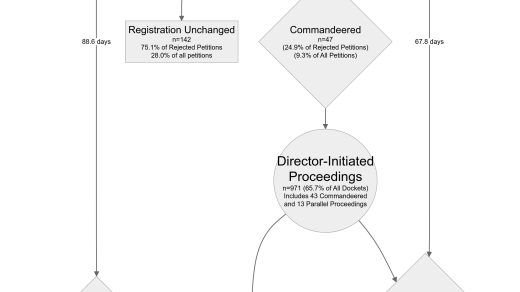A blog post by Santa Clara economist and law professor David Friedman came across one of my social media feeds today, and it resonated with a lot of issues I’ve been thinking about lately. Friedman is taking issue with a particular corner of the climate change debate: the uncertainty over the sign and magnitude of future economic effects of climate change. This uncertainty, he argues, counsels caution: we know it would be very costly to intervene right now; but waiting will allow for more precise assessment of the potential costs of climate change, a longer time frame for spreading those costs over the human population, and–importantly–potential to distribute those costs in a more appropriate way. Here are the key passages for my purposes:
Diking against a meter of sea level change could be a serious problem for Bangladesh if it happened tomorrow. If Bangladesh follows the pattern of China, where GDP per capita has increased twenty fold since Mao’s death, by the time it happens they can pay the cost out of small change.
…
William Nordhaus, an economist who has specialized in climate issues … reported his estimate of how much greater the cost of climate change would be if we waited fifty years to deal with it instead of taking the optimal action at once. The number was $4.1 trillion. He took that as an argument for action, writing that “Wars have been started over smaller sums.”As I pointed out in a post here responding to Nordhaus, the cost is spread over the entire world and a long period of time. Annualized, it comes to something under .1% of world GNP.(Emphasis and link to Nordhaus article added–JNS)
I have no specialized insight into the climate change debate, I have no particular beef against Prof. Friedman or his work, and I carry no particular brief for Prof. Nordhaus or his work. But I think this particular post is a very good encapsulation of how profoundly unhelpful the welfare economics approach is in analyzing problems of social cooperation over long time scales and across disparate populations, and I thought I’d take the opportunity to try to explain why.
In (perhaps excessively) simple terms, Friedman and Nordhaus are arguing over the advisability of spending some amount of money now to reduce CO2 emissions that may or may not someday impose significant economic costs on the human population of the Earth, rather than spending that amount plus an additional $4.1 trillion to reduce CO2 emissions in fifty years’ time if those emissions in fact do turn out to generate the feared costs. Reduced to its essentials, the problem under analysis is a wager. Would you prefer a certain loss of $X today, or an uncertain loss of $X + $4.1 trillion in 50 years? If you’re the famous homo economicus, the answer depends on the probability p of the loss (i.e., the likely need to reduce CO2 emissions) 50 years from now, and your discount rate r. You act now if and only if*
![]() Without a reliable estimate of p, you don’t know which side of the bet to take. And this is part of Prof. Friedman’s point.
Without a reliable estimate of p, you don’t know which side of the bet to take. And this is part of Prof. Friedman’s point.
But I don’t think it’s the important part. I think the important part is in the portions of Prof. Friedman’s post where he discusses how these costs are to be spread. Because he takes pains to point out that, when spread across the entire human population of the Earth over approximately two generations, the number seems relatively small (.1% of annualized global GDP, per Friedman). And who knows: maybe in fifty years’ time Bangladesh can cover this cost on its own, which by implication means that no Western societies will bear any part of the costs–as they certainly would were the costs to be imposed today. The argument has two prongs, both of which blur the distinction between magnitude and distribution: (1) Why should we pay (at least some portion of) $X today, when (2) if we just wait, maybe someone else can achieve an equally acceptable result by paying $(X + Y) tomorrow? The point that we don’t really know the magnitude or even the sign of Y is, I think, a sideshow to the argument. The thrust of the point is that it would be wrong to force us to pay now when it is at least plausibly acceptable for someone else to pay later.
And let me be clear: I am not claiming that the libertarian or right-leaning side of economic debates is particularly guilty of this kind of blurred argument. Rather, I think it is an inescapable bug in the economic analysis of policy and law. For example, Prof. Nordhaus’s book presents a complex economic and environmental model and demonstrates how that model generates the figures $X and $4.1 trillion (actually $2.3 trillion at the time of publication). But these calculations, by Prof. Nordhaus’s own admission, depend on “assumptions and conclusions” that “convey a spurious precision that does not accurately reflect the modeling, behavioral, and measurement errors and uncertainties” of his project (p. 80).
For example, Prof. Nordhaus’s model requires some measure of “social time preference”–a comparison of, say, the benefits society would derive from directing resources today to anything other than carbon taxes to the benefits it would derive decades or centuries from now by directing resources to anything other than addressing the environmental disasters that climate change may wreak on the globe at that time. He does so in essentially the only way a model of his type can: by assuming a constant (p. 50). Again, I don’t mean to come off as dismissive: Professor Nordhaus’s book is the product of a monumental amount of effort and skill that I believe has been applied rigorously and in good faith. But his argument largely boils down to the proposition that it is better for us to pay now than to impose suffering on someone else later. And it isn’t clear to me that economic analysis is sufficient to defend this conclusion.
Economic analysis is on its soundest footing when it seeks to maximize the wealth of well-informed individuals engaged in preference-revealing consensual transactions in well-defined, liquid markets with low barriers to entry. But there is not now–nor will there ever be–any market mechanism whereby the lived experience of a subsistence farmer fleeing his ancestral home in the submerged Bengal Delta in 2055 can be traded against the lived experience of a white-collar professional in Northern California raiding her kids’ college fund to pay for gas in 2015. There are no transactions we can look to as data from which to infer the appropriate design of policies and institutions; there is no way for the future to bargain with the past here. There is, in short, no market for human flourishing.
My point is that reducing the sweeping social and environmental phenomenon of climate change to an economic model requires fundamental assumptions about the moral relevance of human experiences and values across incredibly heterogeneous populations with exceptionally diverse needs and values over expanses of time that exceed the scope of any individual’s lifetime. Those assumptions–normative commitments about whose preferences count for how much and why–cannot help but do the lion’s share of the work in the analysis. Now, to some extent this critique is old hat in legal academic circles. Giants like Dworkin and Posner have been arguing about the problems of interpersonal comparison and aggregation in economic analysis of legal policy literally since I was in diapers. But I think the problem is particularly acute when we analyze areas of human cooperation that impact the experience of individuals widely separated by time, space, and culture.
Which is how an intellectual property scholar comes to be writing (if only briefly) about the politics of climate change. It turns out that incommensurability is a particular challenge not only for devising a response to threatened global cataclysms like climate change, but for more hopeful forms of long-term, broadly distributed social cooperation like knowledge creation. Lately I’ve been researching this problem as it applies to innovation and creativity, as part of a project that has been threatening to become a book. There is no market for human progress either, as it turns out–though we have tried mightily to create one. Instead, there are only our own normative commitments about distribution and value–and these are essentially contested. My goal is to try to catalog these commitments and illustrate the work that they do each time we invoke the authority of cost-benefit analysis or the principle of efficiency in defending (or critiquing) the institutions we use to stimulate and channel creative effort. But once you start thinking deeply about these problems, you start to see them everywhere.
* Update, 10/29/14: It seems that Nordhaus’s $4.1 trillion figure is a present value calculation in itself. So the wager is even easier to specify; it is:



2 Responses
[…] because the future has no way to communicate its preferences to us: as I argued in an earlier post, there is no market for human flourishing. It may be that we have to choose among future states of the world according to idiosyncratic and […]
[…] and the implication of those obligations for our present-day knowledge-governance policies, used analogous arguments in environmental policy as an early springboard. Deeper consideration of our obligations to the future led me to Derek […]